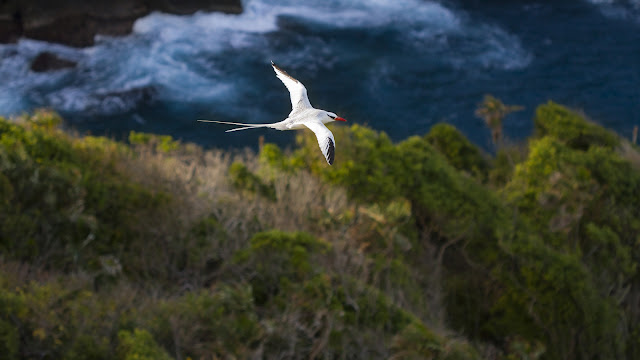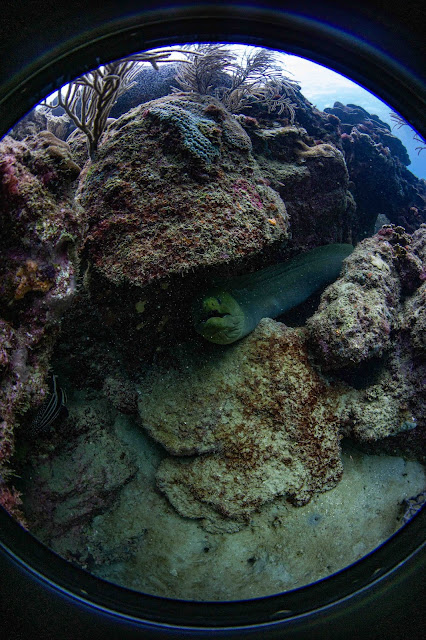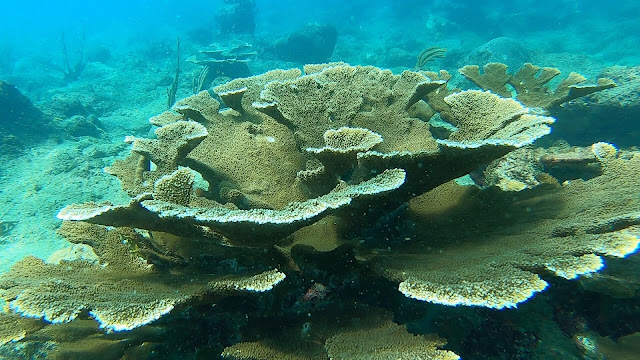Memories of World Environment Days
With
restrictions imposed by Covid-19 around the world, Dr Stanton Belford recounts
his best past observances of World Environment Day. Nature is here for us, he
says, but we need to understand and appreciate our wild spaces every day. Dr
Belford is a Trinidadian marine scientist who is a professor of Biology at
Martin Methodist College in Tennessee USA. One of his significant research
studies is on the reefs of Toco, Trinidad.
This year 2020, World Environment Day will be
celebrated on Friday June 5. I am saddened that I cannot visit Trinidad and
Tobago, as I do annually during World Environment Day, as COVID-19 has placed a
halt on this visit, which in the past was so easy to accomplish. Check to make
sure my passport isn’t expired, review low tide schedules, book my airfare
ticket, and then I’m off! My activities during these past visits included the
Asa Wright Nature Center, the annual Island Hikers Hikeathon from Matelot to Blanchisseuse,
and off course snorkeling at Buccoo Reef, and Nylon pool.
Visits to Toco coral reefs at Salybia and
Grande L’Anse Bays are mostly for research, but I enjoy being engulfed by the
environment. I enjoy the natural breezes of the coast, and hearing the waves
crash in the background. I remember my dad, who passed away when I was nine. He
was from Blanchisseuse, and would always put me on his back as we rode the
waves. This sea environment is what I
seek every time I visit sweet T&T.
What do we know about the Earth’s
environment? The Earth’s surface is divided into land and water. The oceans
cover approximately 70% of the Earth’s surface, making the Earth a water world.
We know so much more about space, than we know about our water world! In fact,
since the first human being (Buzz Aldrin) stepped on the moon on July 20, 1969,
there have been 11 other humans that have accomplished this feat. Approximately
5,300 people have successfully climbed the highest point on terrestrial Earth,
Mt. Everest, with at least 800 annual attempts. Yet, only three have been to
the deepest part of the ocean, Mariana Trench. Most notably, James Cameron, an
avid environmental filmmaker, with documentaries and movies, such as Blue
Planet, The Abyss, The Terminator, Titanic, and Avatar, to name a few.
Currently, Wood’s Hole Oceanographic
Institution (WHOI) has begun weekly webinars concerning the oceanic
environment. On one such webinar, James Cameron shared that he learned to SCUBA
dive at the age of 14, with no one next to him. Wait! What! How? Second rule in
SCUBA diving, never dive alone. Well, apparently, he was not alone, as his dad
tied a rope around James’s waist, and held it up top, while James explored
below. He made the impossible possible, but with the support of his dad.
 |
| Like Fabien Cousteau on the shoulders of his grandfather Jacques Cousteau, Stanton Belford was taken into the sea at Blanchisseuse by his father. |
Another WHOI webinar featured Fabien
Cousteau, the first grandson of the world-famous Jacques Cousteau, who brought
the ocean environment to our living rooms. Like James Cameron, Fabien learned
to SCUBA when he was four years old, with his grandfather at his side,
exploring the underwater marine environment. Think about it! Why do local and
international visitors flock to Tobago’s Buccoo Reef and Nylon pool? Well, in
some way it’s because of Jacques Cousteau’s documentaries motivating humans to
venture into the ocean. And why not? Approximately 3.2 billion people of the
global population live within 60-100 miles of the ocean. I’d say that includes
everyone in Trinidad and Tobago. In fact, I’d say we visit more frequently for
a lime, an excursion, or just to run away for a day or two. Essentials on these
frequent visits include pelau, roti, drinks, friends and family, and that’s all
we need! A peaceful environment to connect with the ones we love.
Yet, we do need a little bit more now. Only
4% of the world’s ocean environment is protected. That miniscule percentage is
even smaller for T&T, but we are still thankful for the protection of
Buccoo Reef. We need more protection.
Many local groups conduct annual beach clean-ups to alleviate a new “beast”
that plagues the environment, plastic pollution. For us in T&T, this is a
problem, which will only get worse, if we continue to ignore it. Beach
clean-ups only temporarily reduce the pollution problem. We need a change in
attitude towards the environment. Some of us remember the slogan, “Chase
Charlie Away” highlighting “Charlie” as pollution; we had to be scared to
litter. In fact, I’m still scared to litter to this day, in fear of this
Charlie character, which was a nightmarish figure. We need this change in
attitude towards the environment.
So what is the future for the ocean
environment? Fabien Cousteau is leading the charge here. We have an
International Space Station, with astronauts living onboard. Scott Kelly has
spent a year in space, the first and only human so far. But what about the
ocean? There have been many underwater research habitats, but Mission 31 is the
only one that comes to mind. Fabien Cousteau envisions building a new
underwater research facility called Proteus, which will enable researchers and
aquanauts to live months underwater, while conducting research on ocean
environments. Now that’s exciting!
What are the plans for the ocean environments
surrounding T&T? Wouldn’t you like to see a position in government, such as
a Minister of the Environment, whose main task is to protect the environment?
Wouldn’t you like to drive to the northeastern coast to see recycling bins
along the beaches, and less plastic bottles, beer, and liquor bottles in the
sand? Wouldn’t you like to take your kids to Buccoo Reef and learn about fishes
and creatures in an aquarium, then see and name these fishes while on the glass
bottom boats? Who are our James Cameron and Fabien Cousteau, who accepted the
challenge to explore and discover the ocean? Through WHOI sponsored webinars, they
encourage everyone to do the same
Jacques Cousteau once said, “People protect
what they love, they love what they understand, and they understand what they
are taught.” For T&T, the change in attitude for the environment begins
with the education of youths and adults, followed by assisting citizens to
understand the need to protect both ocean and terrestrial environments. This
will lead to loving and protecting our precious island environments.
Happy World Environment Day, my sweet
T&T.
 | |
| Dr Stanton Belford, SCUBA diving in the Red Sea, 2010 (Photos courtesy Dr Stanton Belford) |


